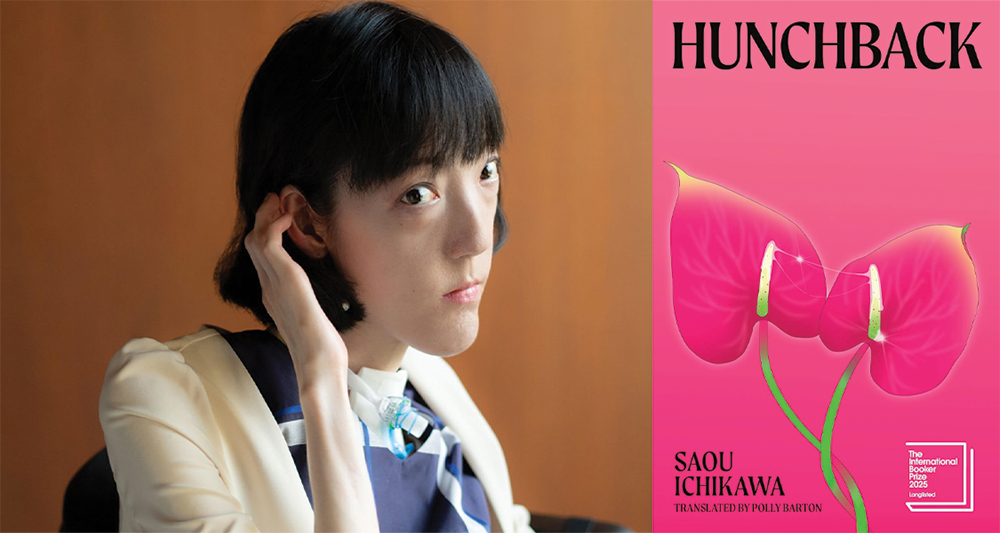Hunchback by Saou Ichikawa, translated from the Japanese by Polly Barton, Hogarth, 2025
Saou Ichikawa is the first disabled author to win the prestigious Akutagawa prize. The protagonist of her prize-winning novella, Hunchback, translated from the Japanese by Polly Barton, is Shaka, a woman who shares the same disability as the author herself: myotubular myopathy—a condition where the muscles can’t grow, preventing heart and lungs from maintaining normal oxygen saturation levels. The parallels between Shaka and the author don’t stop there but Hunchback is far from autobiographical. According to Ichikawa’s own calculations, only about 30% of the plot is based on her life; a mathematical balance that lends true authenticity to the writing, while also leaving plenty of room to push the boundaries of what the characters can say or do. And it is this blending of fact and fiction that allows debut author Ichikawa to engage in the interesting philosophical quandaries that Hunchback posits, offering a nuanced and transgressive take on disability rights, sexuality, bodily autonomy, and class. In a society that largely ignores the existence of disabled people, Hunchback demands to be heard and serves as a start to a much larger conversation about how to reconcile the freedom of choice with the freedom to a dignified life—and who gets to define what that means.

